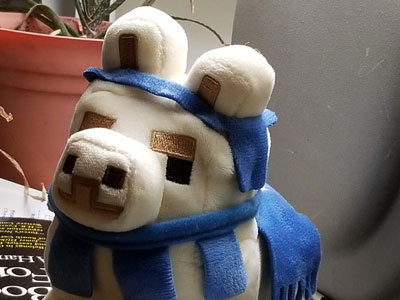April is National Poetry Writing Month, and many poets like to challenge themselves to write a poem a day. With that in mind, Wild Violet will be sharing poetry prompts each day: one geared towards adults and one for kids.
If you write a poem based on this prompt, feel free to share a link to your poem, or the poem itself, in the comments. Poems appearing in the comments are not considered published in Wild Violet, and you retain all rights to your work.
List Poem
For adults:
Seemingly simple, a list poem can have a cumulative impact on the reader. While list poems don’t have a set rhythm, the repetition of an initial phrase can create a rhythm. Use this form to explore anything from drab, everyday routine to a catalog of internal thoughts. Or, instead, wrote a litany, using repeated phrases for a sacred or religious feel. For examples, read “Litany in Which Certain Things are Crossed Out” by Richard Siken, “War Profit Litany” by Allen Ginsberg, “The Lost Lost-Property Office” by Roger McGough and “What a Poem’s Not” by John Hegley.
For children:
Using a list of things in a poem can create a humorous effect, or it can paint a scene. For example, if you listed all of the things you can see outside your window, that would create an image in the reader’s mind of the place where you live. Today, write a list poem by following these simple guidelines:
- Choose a subject. Do you want to write about something you can see and touch, like something in your home? Maybe things that you like? Places you’ve visited? People in your lives? Imaginary scenes, creatures, or items?
- Begin the poem with an introduction, a line or two (or more) that set up the idea of the poem. For example, “When I looked under the bed last night, I saw…”
- Create your list. You can put several items on one line or one item on each line, for as long as you care to go. You can use commas between the items or, you list one per line, you can leave the commas out.
- Conclude the poem with some sort of ending. If it’s a humorous poem, conclude with a punch line. If it’s not a humorous poem, conclude with a final thought.
My Audience
I’m trying to write a poem, but I’m being stared at
by a white llama wearing a blue blanket
a fat hamster with his paws on his stomach
a chickadee, leaning to one side
a giant green hummingbird
another llama, identical to the first
a tiny robot with blocky hands
a dog with sad eyes and a pink nose
a little boy with wide brown eyes
and though most of these
can neither move nor speak,
they’ll serve as my excuse
to delay this poem a week.


